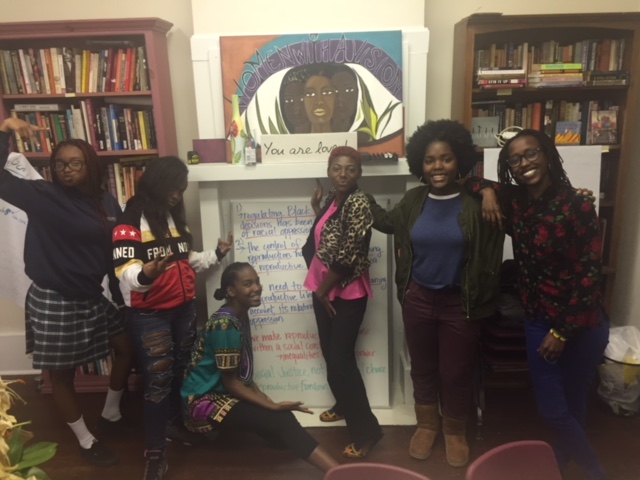It’s hard to believe the semester is half way done–the past few months seem to have flown by so quickly. In the midst of midterms, the sessions have provided me with a space free of constant assessments, where instead I can sit back, discuss, and reflect. It is a different kind of learning–one that I think is in many ways more valuable that that I do in the classroom. And while my academic studies are undoubtedly relevant to my future professional experiences, the subjects discussed with the girls in the YWWAV program are more directly applicable to my personal life, and the personal lives of the women to whom I hope to dedicate the work I do in the future. We ask questions that get to the heart of things; questions like, “What is love?” and “What is consent?” and “What do those things have to do with reproductive justice?” (the answer to the final one is “Everything.”)

This week’s session began with a free-write exercise in which the girls were asked to attempt to define love and its many forms, as well as think about the ways in which they expressed love. After unpacking their responses to the prompt, they were again asked to do a free-write, this time on the subject of consent–giving a definition and explanations of how they know when they’ve given consent, withheld consent, and received consent. The final question asked them to think about how the two are related, and how each was in turn related to reproductive justice. Hearing their thoughts and stories on these things was eye-opening, sometimes uplifting, and sometimes heartbreaking. It took me back to my own years in middle school and high school, and made me realize what a profound impact those years had in shaping my views on relationships (both sexual and non), and on myself as a woman. I was reminded of the importance of spaces and conversations like these for girls of their age, and how their presence or absence can have long-term impacts for their health and wellbeing, and even shape the future of the way our society views and treats women.
We discussed how consent is something universal, that shapes nearly every aspect of our everyday lives. The conversation around it is often restricted to our sexual lives, especially in this era of #MeToo, when violations of sexual consent are being talked about everywhere. But for true progress to made for women, consent shouldn’t just be a sex issue. We have to talk about how women, especially those belonging to socially marginalized groups are forced to make decisions that aren’t true choices made free of coercion or external pressure every day of their lives. As the girls and I discussed, there is a very real difference between choices made freely, and decisions made when given no other options. Unfortunately, the reality is that for many Black girls and women, such as those in the program, their lives are shaped by a lack of power, and thus a lack of choice. They are living in circumstances and forced to play roles that they did not consent to, largely because of the interconnections of their gender, race, and other aspects of their identity–this is ultimately what the fight for reproductive justice seeks to address.
